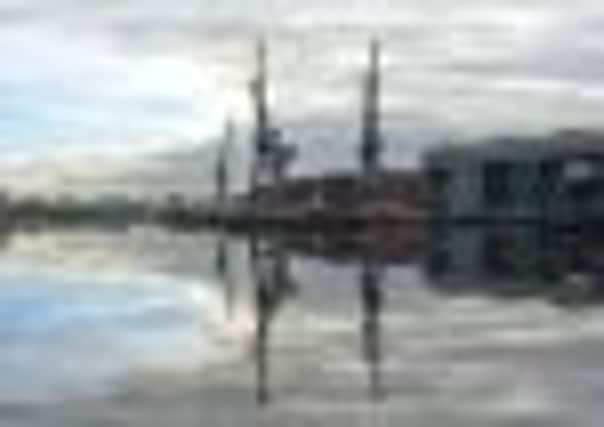Leader: Risk to Clyde shipyards must be countered


But events over the years have painfully reminded us that this great aptitude and the jobs and prosperity it brings cannot be taken for granted. Now, a combination of weak demand and government defence spending reductions have caused Nigel Whitehead, the chief executive of BAE Systems, to warn that one of its major shipyards may have to close.
This should not be seen as some vague threat, or one wished away on hopes of future work. In an interview at the weekend, he said a decision would be made by the end of the year – just a few weeks way. The news has immediately raised questions as to which of the three main yards – Portsmouth, Govan and Scotstoun – will be affected.
Advertisement
Hide AdAdvertisement
Hide AdThe completion of work on two new aircraft carriers has left a question mark over the future of BAE’s shipbuilding operations for some time, as defence spending cuts have cast doubt as to whether there would be sufficient work to keep all three yards busy and profitable. Reports that the Ministry of Defence is on course for a £1 billion underspend, and that a cash-strapped UK government may be anxious to claw at least some of this money back, add further uncertainty.
It is not a straightforward question of cutting costs to the current state of orders. The issue is how to cut costs while preserving the capacity to design and manufacture complex warships. At present, it looks as if Portsmouth is the most vulnerable, with as many as 1,500 jobs put at risk. A key factor here is that many of its staff are temporary, and if BAE is keen to preserve its manufacturing capability, it may opt to keep the Clyde yards, where it has a permanent workforce.
However, the looming referendum on Scottish independence is almost certain to be cited as a reason for favouring Portsmouth to escape closure. The argument will be advanced that, given the uncertainty over Scotland’s future, a UK government would be reluctant to commit itself to shipbuilding capacity in Scotland as this could mean sensitive defence manufacturing being undertaken in what would be a foreign country.
It is a concern that managers of the Clyde yards will need to prepare for and counter. One obvious line to advance is that, in the event of independence, such arrangements would be subject to co-operation and agreement between the two governments. Contracts would be governed by Memoranda of Understanding between BAE and the two governments involved. Another is that there is much construction and fabrication work of a non-militarily sensitive nature that could be carried out at Govan that would not involve any potential compromise of security.
Nevertheless, political hostilities will almost certainly feature in the intense lobbying that will now get under way.
SRU players must rise to wake-up call
Andy Robinson was well liked as Scottish rugby’s national coach. Under his regime there was evident improvement, glimmers of promise – and a swelling of attendance at Murrayfield.
But notwithstanding three tries against the All Blacks, the recent record of defeats – and a most embarrassing failure against Tonga (population 100,000) on Saturday – here was depressing testimony that the improvement has not advanced nearly enough.
What ails Scotland’s rugby performance? Inconsistency is a most frequently cited problem. There is also evidence of a dearth of ideas, a back line prone to basic errors, few players of international distinction and arguably a lack of leadership on the field to inject passion and direction when it is most needed.
Advertisement
Hide AdAdvertisement
Hide AdOne of the more troubling features of Saturday’s performance was the absence of a motivational spark, an apparent lack of urgency and commitment to turn the game round and turn opportunities into tries.
Some problems can be tackled quickly. But there are deeper issues that will take time to address. It is too easy to blame the coach for all shortcomings. And no-one should expect the new coach, whoever is chosen, to be able to effect instant results.
There is a strong case for the Scottish Rugby Union to consider the creation of a third team to join Edinburgh and Glasgow and thus expand the talent pool and the opportunity for new, young players to gain experience.
In the meantime, defeat at the hands of Tonga should serve as a wake-up call that the entire squad needs to lift its performance.
We were great once. We can be great again.